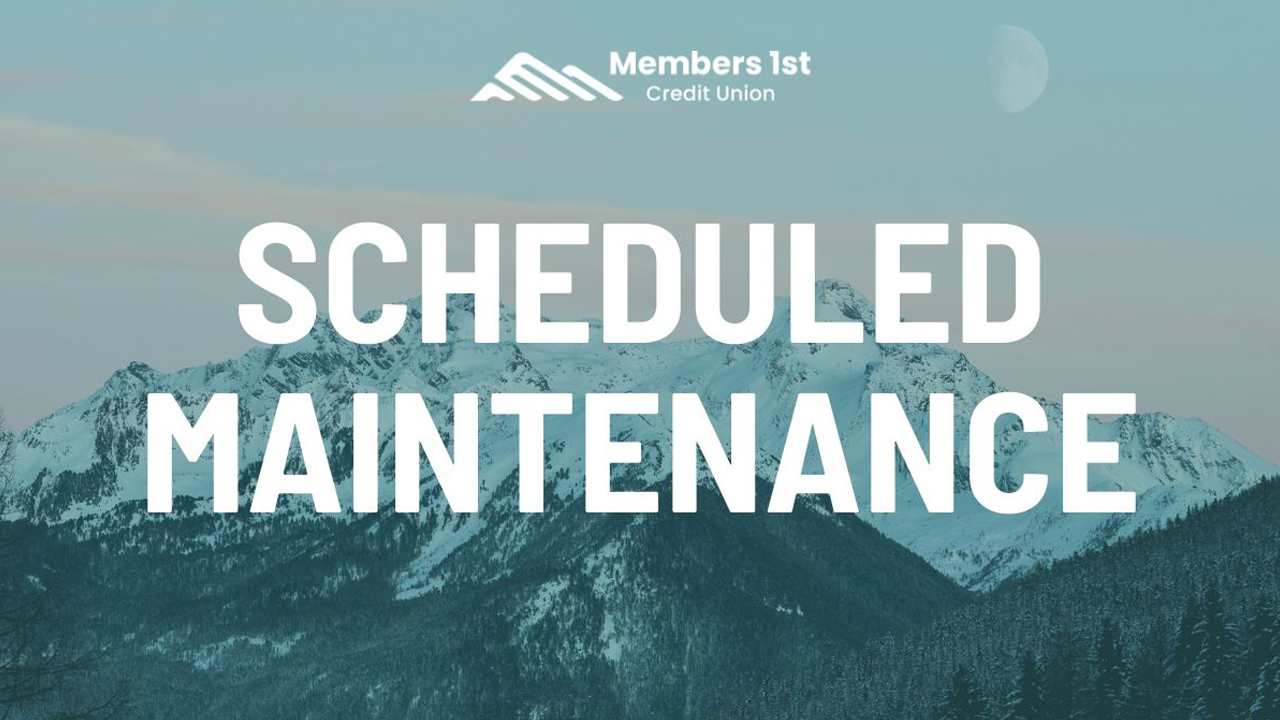
Changes To Members 1st Courtesy Pay and Overdraft Service Charges
At Members 1st Credit Union, our top priority is the financial well-being of our members. As part of that commitment, we're making reductions to our Courtesy Pay, Returned Item, and Stop Payment Fee structure. These changes apply to all M1CU member accounts.
What's Happening and How These Changes Impact You
We offer a few services as a safety net for members who do not have enough immediate funds in their account to pay a transaction. To further benefit our members and their journeys to financial success, it is with pleasure that we announce updates to our program and related fees.
Effective October 16th, 2023, the following changes have been implemented:
- Courtesy Pay Fee (Payment processed on behalf of the member even though there was an insufficient available balance)
Reduced from $29 to $15. Maximum of 3 per day. No fee on transactions of $10 or less. - Returned Item Fee (NSF Fee) (insufficient available balance)
Reduced from $15 to $0. - Stop Payment Fee (Member has requested Members 1st to stop a payment)
Reduced from $29 to $15.
When We Charge Courtesy Pay Fees and How You Can Avoid Them
Courtesy Pay is a service that allows you to overdraw your account when you have insufficient funds. If you have Courtesy Pay, Members 1st will pay the difference to complete your transaction and then charge you a nominal fee for using this service. Standard coverage includes transactions done by check or electronic debits. If you opt into Extended Coverage, everyday debit card, and ATM transactions will also be covered.
To avoid Courtesy Pay Fees, consider setting up overdraft protection on your checking account that pulls from another suffix on your account, such as your savings, money market, or credit card, when you have insufficient funds in your checking account. In addition, email and push notifications can be set up in online banking or the mobile app to alert you of low balance thresholds on your account.
What Are Returned Item (NSF) Fees and How Am I Impacted
A Returned Item Fee, also known as a Non-Sufficient Funds (NSF) Fee, is charged when your account is overdrawn and the item is returned unpaid. NSF Fees were charged when you didn’t have enough funds in your checking account to cover your attempted transaction and you have exhausted all Overdraft Protection and Courtesy Pay options. This is commonly known as having a "bounced" payment. If you are someone who occasionally makes check or ACH transactions and the funds to settle your transaction are not available in your account when the transaction attempts to clear, you will no longer receive a fee for having this item returned by the credit union. If you are someone who makes transactions that do not exceed the funds available in your account, you will not be impacted by this fee removal.
Additional FAQs
What's the difference between my available balance and my current balance?
Your available balance is how much money you can spend right now, including any pending card transactions. Meanwhile, the current balance shows how much money is in your account without subtracting pending card transactions.
How many Courtesy Pay Fees can I be charged in one day?
The Courtesy Pay Fees have a maximum of 3 fees per day.
Is there a grace amount that is not charged a Courtesy Pay Fee?
No Courtesy Pay Fees will be charged on transactions of $10 or less.
What's the difference between Courtesy Pay and Courtesy Pay Extended Coverage?
Courtesy Pay allows you to overdraw your account up to the disclosed limit for a fee to pay a transaction. Even if you have Overdraft Protection, Courtesy Pay is still available as secondary coverage if the other protection source is exhausted. Please review the "What Else You Should Know" section at www.m1cu.org/courtesy for other important information.
Courtesy Pay Extended Coverage includes all Standard Coverage, plus transactional coverage for everyday Debit Card transactions and ATM transactions.
For more information or to sign up for Courtesy Pay extended coverage, click here.




.jpg)